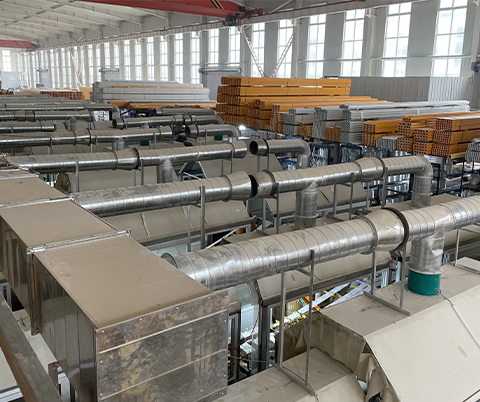loading...
- No. 9, Xingyuan South Street, Dongwaihuan Road, Zaoqiang County, Hengshui, Hebei, China
- admin@zjcomposites.com
- +86 15097380338
- Welcome to visit our website!
frp filter tank
The Importance of FRP Filter Tanks in Modern Filtration Systems
In today's fast-paced industrial and municipal landscapes, the demand for efficient and reliable filtration systems has never been greater. One critical component that has gained significant attention is the Fiberglass Reinforced Plastic (FRP) filter tank. This innovative technology offers a range of benefits, making it an ideal choice for various applications, from water treatment to chemical processing.
What is an FRP Filter Tank?
FRP filter tanks are constructed from a composite material that combines fiberglass with a resin matrix, resulting in a lightweight yet durable product. The intrinsic properties of fiberglass allow for customization in terms of shape and size, making these tanks suitable for various filtration needs. Unlike traditional steel or concrete tanks, FRP tanks resist corrosion and degradation over time, extending their lifespan and reducing maintenance costs.
Advantages of Using FRP Filter Tanks
1. Corrosion Resistance One of the primary advantages of FRP filter tanks is their exceptional resistance to chemicals and environmental factors. This makes them particularly suitable for applications involving aggressive substances, ensuring the integrity of the tank over the long term.
2. Lightweight and Easy to Install The lightweight nature of FRP allows for easy handling and installation. This attribute not only simplifies the setup process but also reduces transportation costs, making FRP filter tanks a cost-effective solution for many industries.
frp filter tank

3. Customizable Designs FRP tanks can be tailored to meet specific requirements, including varying shapes, sizes, and filter media. This flexibility ensures that industries can achieve optimal filtration performance based on their unique operational needs.
4. Thermal Insulation FRP materials exhibit good thermal insulation properties, which can be advantageous in managing temperature-sensitive processes. This characteristic helps to maintain stable operating conditions within the tank, enhancing filtration efficiency.
5. Sustainability FRP filter tanks are often considered a more environmentally friendly option compared to traditional materials. Their extended lifespan and minimal maintenance requirements contribute to lower resource consumption over time, aligning with sustainable practices that many industries strive to adopt.
Applications of FRP Filter Tanks
FRP filter tanks are employed in a variety of applications. In municipal water treatment, they serve as essential components for filtering out impurities and ensuring safe drinking water. In agricultural settings, they can be utilized for irrigation water treatment, helping to improve crop yields by providing clean water to plants. Additionally, industries focusing on chemical processing, wastewater treatment, and even aquaculture are increasingly adopting FRP filter tanks as part of their filtration systems.
Conclusion
As industries continue to seek efficient and durable solutions for their filtration needs, FRP filter tanks stand out as a superior choice. Their corrosion resistance, lightweight design, customizable nature, and sustainability make them a vital component in modern filtration systems. By investing in FRP technology, organizations can not only enhance their operational efficiency but also contribute positively to environmental sustainability. As we advance towards a more eco-conscious future, the role of FRP filter tanks in water treatment and industrial processes is set to become even more significant, ensuring cleaner and safer environments for generations to come.
-
The Expansive Industrial Reign of FRP Pressure VesselsNewsAug.22,2025
-
Manufacturing Premium FRP Square Pipes for Global Wholesale ExcellenceNewsAug.22,2025
-
Strategic Applications for FRP Grating SolutionsNewsAug.22,2025
-
Material Science Forging GRP Water Tank LongevityNewsAug.22,2025
-
The Engineered Excellence: Material Science Behind FRP Railing SystemsNewsAug.22,2025
-
How Digital Pultrusion Revolutionizes FRP Profile WholesalingNewsAug.22,2025
-
The Rise of FRP Profiles: Strong, Lightweight, and Built to LastNewsJul.14,2025
